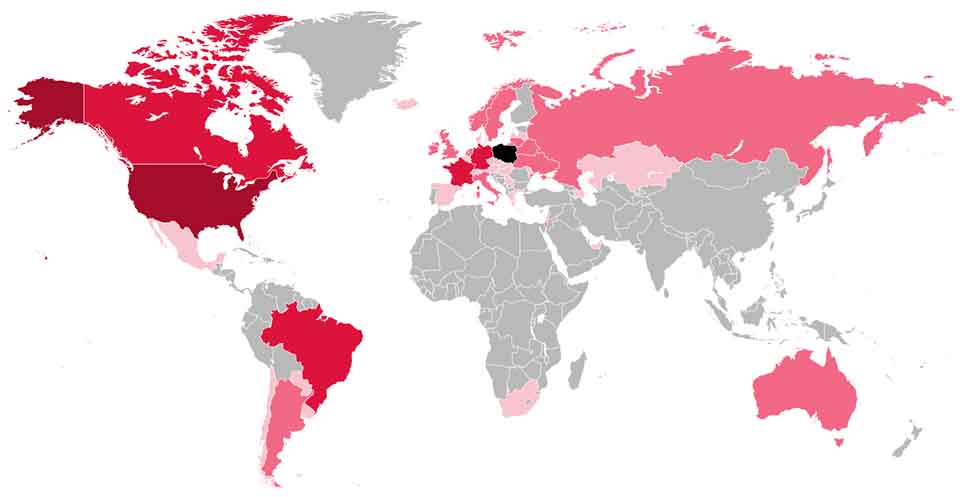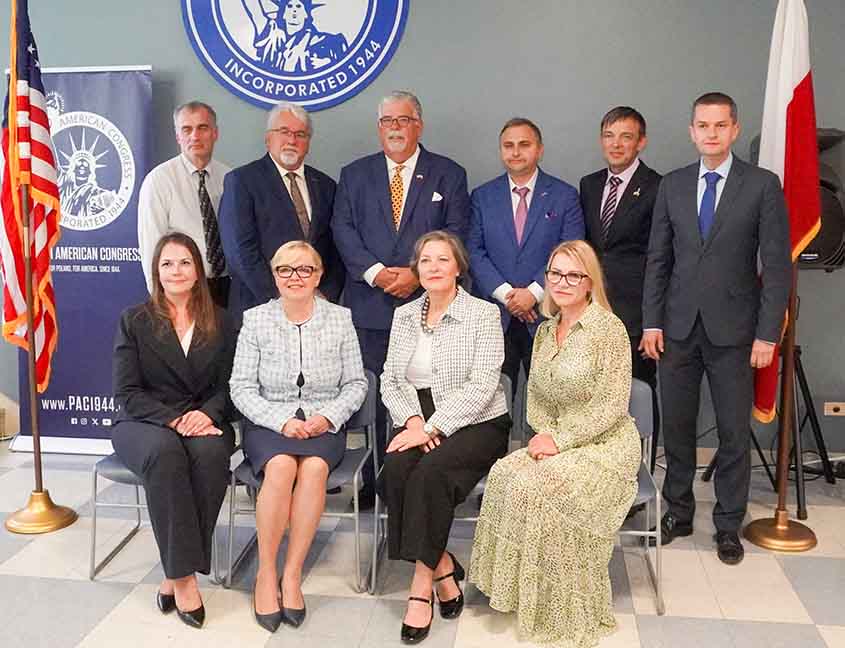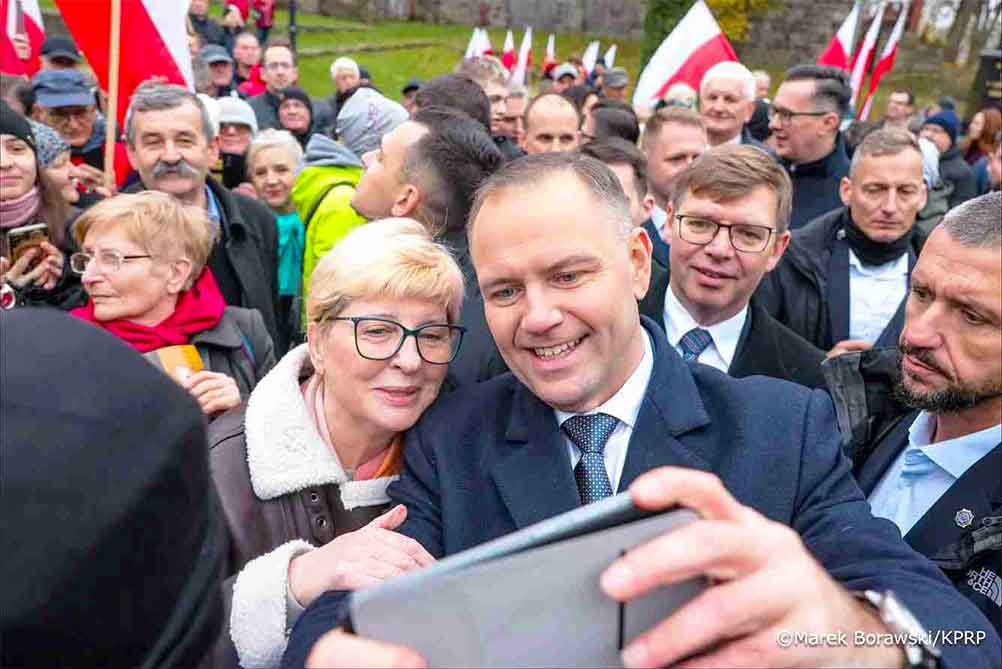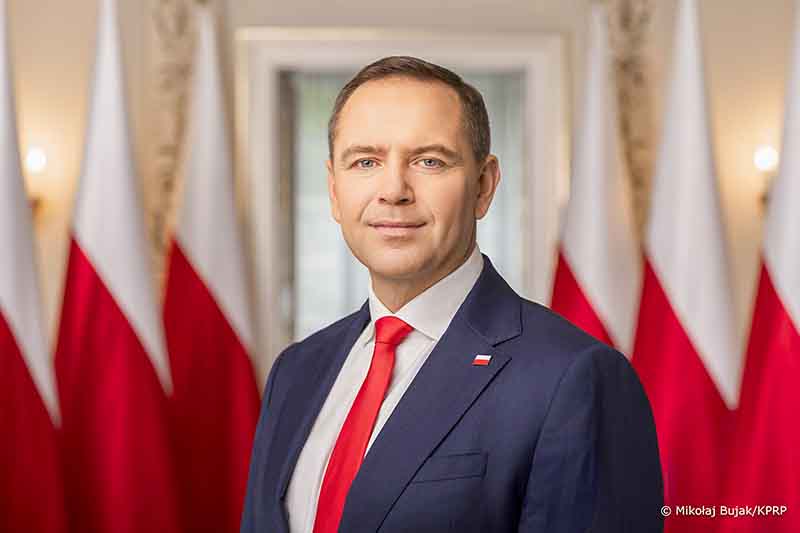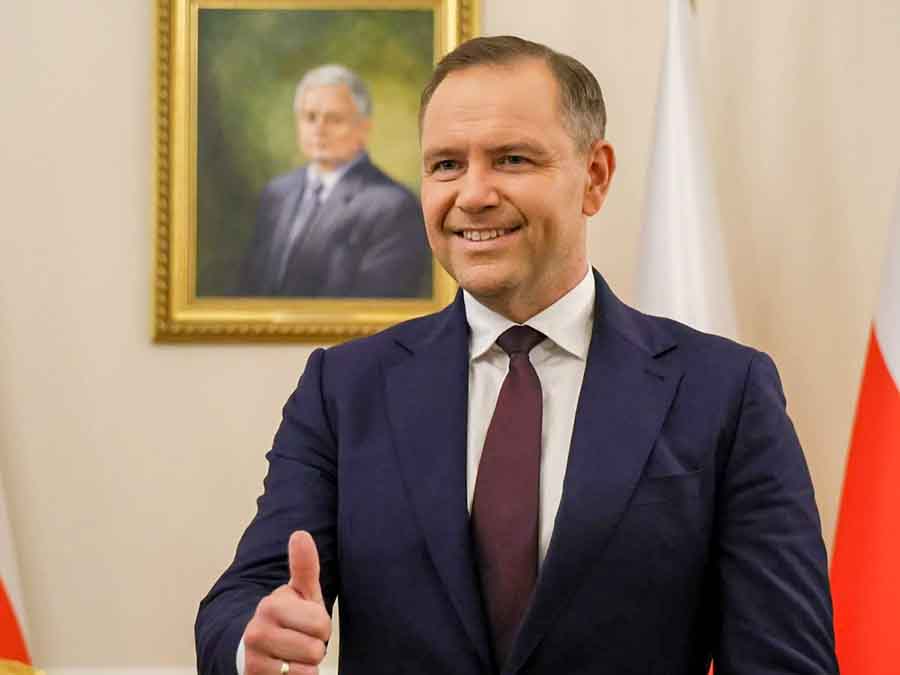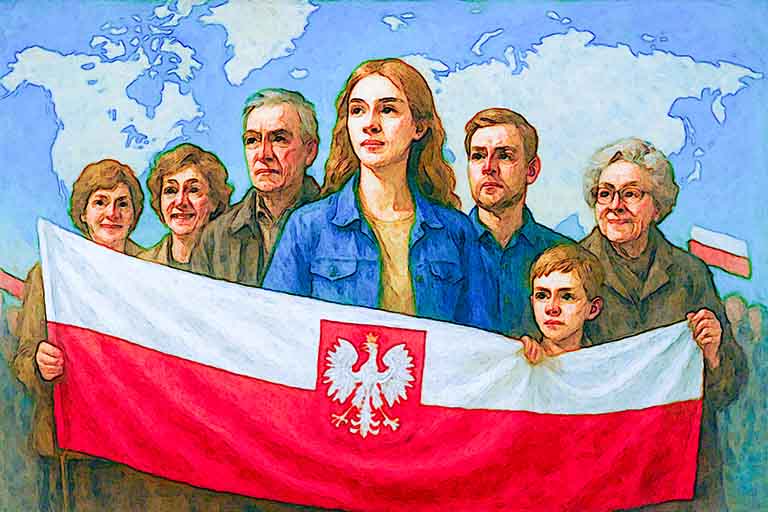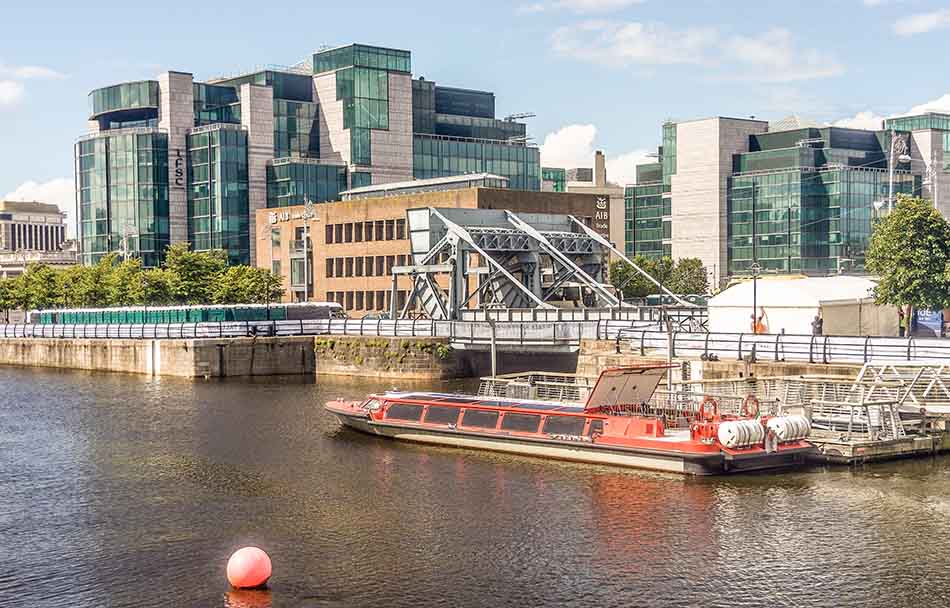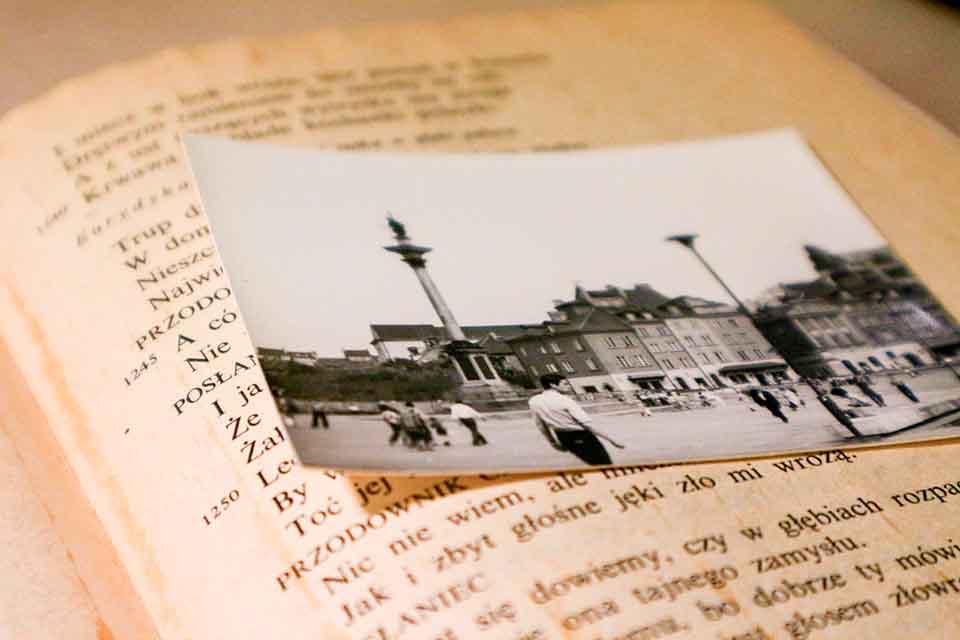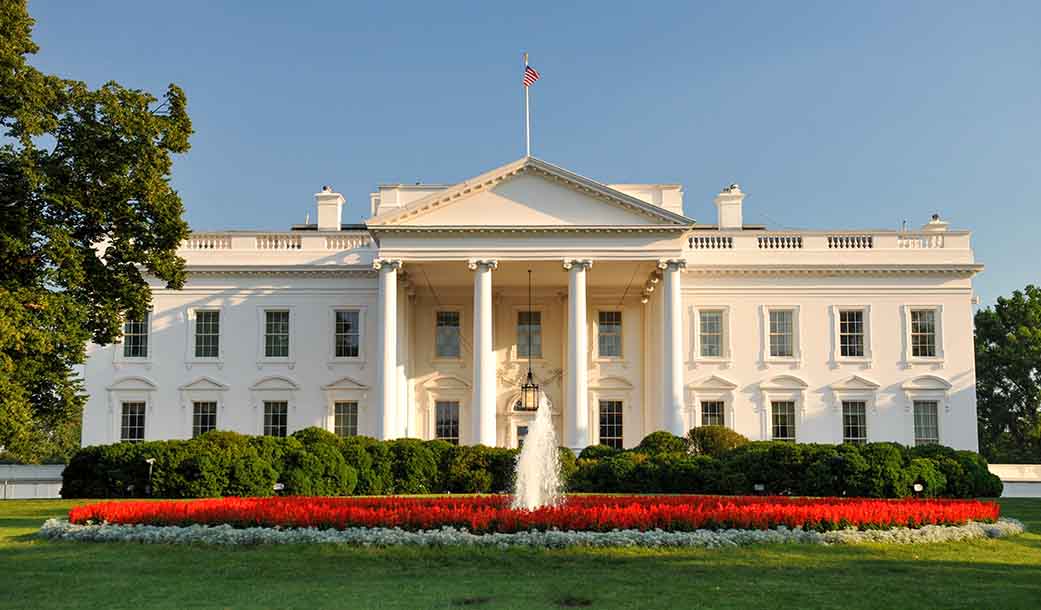There are as many as 20 million people worldwide who are proud of their Polish heritage. All these individuals represent a huge potential that must be united to serve Poland globally and help shape a modern image of Poland, Polish culture, science, art, and economics.
The Polish diaspora is the fifth largest group in OECD countries. Over a quarter of Polish emigrants (28.8%) are people with higher education.

Parade in New York (Source: president.pl)
The Polish American community itself, estimated at approximately 10 million people declaring Polish descent, constitutes one of the largest and most assimilated diasporas in the United States. Its potential—social, economic, scientific, and political—remains largely untapped in Poland-US relations. The 3% of the US population represented by the Polish American community cannot be underestimated in this important political arena.
Contemporary geopolitical conditions, the growing importance of Poland in the region of Central and Eastern Europe and the strategic alliance with the United States create a unique opportunity for the Polish diaspora to become an active and modern partner of Poland on a global scale.
Diagnosis of the situation
Strengths
Human, Financial, and Intellectual Capital: Poles in the US are among the highest educated and highest-income groups. They are present in science, medicine, technology, business, and public administration.
Strong institutions and organizational traditions: the Polish American Congress (KPA), the Kościuszko Foundation, the Polish American Congress, and numerous chambers of commerce, parishes, and Polish diaspora media constitute stable pillars of Polish diaspora life.
Positive image: Poles in the USA are perceived as hardworking, loyal and reliable partners.
Shared Values: Democracy, freedom, religion and family create a natural bridge between Poland and American society.
Weaknesses
Lack of unified political representation: The Polish diaspora is dispersed, internally diverse and politically polarized; there is no strong lobby at the federal level.
Aging structures: Many organizations operate according to models from the mid-20th century, which are inadequate to modern realities.
Poor coordination with Poland: The Polish state lacks a long-term strategy towards the American diaspora. There is no single, clear center in Poland that could undertake ongoing coordination and work with the Polish diaspora.
Insufficient media coverage: Polish-American media have limited reach and rarely enter mainstream American discourse. Without bilingual media, the Polish-American community—the 9 million people who don't speak Polish—has no chance of maintaining its identity as a significant ethnic group in the United States.
Strategic Analysis
TABLE
Prospects and development opportunities
Polonia as an Economic and Innovation Bridge
Polish entrepreneurs and scientists can support the development of transatlantic cooperation networks in areas such as energy, cybersecurity, artificial intelligence, and medicine. Initiatives such as Polish Tech Bridges or the Polish American Innovation Network could serve as platforms for knowledge exchange and investment.Strengthening political capital
Organized lobbying in the US Congress, cooperation with the Congressional Polish Caucus, and supporting candidates of Polish descent at the local and state levels can yield real political influence. The Polish diaspora should operate according to a "smart lobbying" model, modeled on the experiences of the Jewish and Irish diasporas. Issues related to NATO's eastern flank, the presence of American troops in Poland, reparations for Poland from Germany, and many other issues require support and ongoing lobbying.Civic and Cultural Diplomacy
The Polish diaspora can become a vehicle for Poland's soft power – by promoting history, culture, science, and democratic values. Collaboration among cultural institutions, universities, and think tanks should lead to increased Polish visibility in the American public sphere. Building "soft power" and a global strategic network by connecting Poles at home with the diaspora is a prerequisite for Poland's success in international relations. This initiative should involve the creation of mixed Polish–Polish-Diaspora expert groups in key areas (economics, energy, security, technology, medicine, military).Generational Transformation
The new generation of Polish diaspora – raised in American culture, bilingual, and digitally competent – has the potential to renew structures and restore the Polish diaspora's role as active public opinion leaders. Investing in education, mentoring, and grants for young leaders is crucial. Generational change within the Polish diaspora, especially on supervisory boards, should be emphasized. We should reject "persistence" and seek young, ambitious, acculturated activists. Another significant problem for the Polish diaspora is its isolation within its local community, failing to acknowledge the significant challenges facing the Polish diaspora at the national level.
The largest middle class outside of Poland
Finances and Potential of the Polish Diaspora
In the first quarter of 2025, the Polish diaspora remitted approximately PLN 2.86 billion (USD 0.78 billion) to Poland. For comparison, in all of 2023, the total amount of remittances was approximately USD 6.43 billion, almost half the record level in 2008 (USD 12.32 billion).
The Polish & Slavic Federal Credit Union, with 22 branches in the US, had USD 2.45 billion in deposits and 124,708 members at the end of June 2025 – an average of over USD 19,600 per person. It's hard to overestimate the financial potential of approximately 10 million American Poles.Demographics
The latest United States Census 2020 shows that 95% of American Poles were born in the United States, and 8,969,530 people claimed Polish ancestry—not out of compulsion, but voluntarily. Research over the past few decades has clearly shown that the Polish ethnic group is better educated than the average American. 43.5% have at least a college education or higher, compared to the American average of 33.1%. Americans of Polish descent are also wealthier than the average American ($79,000 compared to the average of $63,000 in family income; as many as 71% declare affiliation with the Roman Catholic Church—Polish Americans Today: A Survey of Modern Polonia Leadership, Piast Institute, 2020).
Strategic Recommendations
For the Polish side:
Adopt a long-term Strategy for Cooperation with the Polish American Diaspora (2025–2035), integrating the activities of the Chancellery of the President of the Republic of Poland, the Ministry of Foreign Affairs, the Chancellery of the Prime Minister, cultural institutes and economic ministries.
Modern Diaspora Policy — Not just from "the sea to the Tatra Mountains," but "from Chicago to Tobolsk." We need an active system of support for the Polish diaspora in every consular district and a modern diaspora policy. Consulates must become nonpartisan centers of Polish diaspora life — active, open, educational, and nonpartisan. Passports for children born abroad should be easier to obtain, consular services should be expanded to other centers, the issuance of Polish Cards should be intensified, and a real repatriation and return policy should be implemented.
The Polish diaspora is one-third of the nation living outside Poland — It's time to incorporate into the Constitution the fact that approximately 60 million Poles live worldwide, of whom approximately 20 million are Poles and citizens of Polish descent. They should finally be recognized as an integral, independent, and valuable part of the Polish nation.
Creating a political representation of the Polish diaspora—Poles abroad should regain full civil rights, including the ability to vote by mail. For the Polish diaspora to actively participate in Polish politics, it is necessary to create special constituencies for citizens permanently residing abroad, who could nominate their own parliamentary candidates. The proposal envisages four constituencies: North America, Central and South America, Europe, and Australia, with four seats each—a total of 16. This would allow for the creation of a parliamentary caucus with real influence on the work of the Sejm. Such a solution would lay the foundations for a stable Polish lobby abroad, developing over the next 20–30 years.
Establish the Polish Diaspora Strategic Council to the President of the Republic of Poland – an advisory body with the participation of Polish diaspora leaders and experts.
Increase support for public diplomacy through funding for cultural, educational, and media projects implemented in the US. Ninety-five percent of the Polish diaspora in the US does not speak Polish. Attractive educational, media, and cultural offerings are needed. Promoting student exchange and supporting the study of Polish language, history, science, and economics within the international university system.
Create the Polonia 2.0 Fund – supporting projects of young leaders, start-ups and academic initiatives.
World Congress of Polonia — proposal for a new organization:
To unlock authentic relations between the diaspora and Poland, the establishment of a World Congress of Polonia is essential. After 1989, some formally democratic institutions in Warsaw continued their old patterns, promoting only individuals associated with their narrative and using public funds intended for the Polish diaspora. The Congress should be convened by the President of the Republic of Poland, Karol Nawrocki, with the participation of all Polish diaspora organizations, and located at the office of the President of the Republic of Poland, thus elevating it to the status of an institution of particular national and diaspora importance. The Congress's tasks would include:
Adoption of the statute and election of authorities
Creating transparent, professional relations between the Polish diaspora and the Motherland;
Building the "soft power" of a global strategic network by connecting Poles at home and abroad;
Creating mixed expert groups in key areas (economics, energy, security, technology, medicine, military) and training Polonia leaders;
Development of the "Diaspora Investment Initiative" investment project and a non-partisan database of experts supporting the development of Poland;
Managing administrative matters, coordinating projects and supervising the implementation of initiatives in contact with the government;
Maintaining effective communication channels between all Congress participants and ensuring transparency and real influence of the Polish diaspora on state policy;
Organization of the annual Polonia–Poland Strategic Forum in a large diaspora center.
The structure of the Congress should be simplified and its activities should be focused on having a practical impact on the development of Poland and strengthening the position of the Polish diaspora in the world.
For the Polish side:
Consolidation of communities – building a non-partisan representation of the Polish diaspora, capable of dialogue with US and Polish institutions.
Professionalization of activities – training in lobbying, public communication and organizational management.
Development of think tanks and English-language media – presenting the Polish point of view in American public discourse.
Paderewski Institute — restoring the former importance of the Polish diaspora in North America.
Expanding the network of economic and scientific cooperation – including through partnership programs between universities and companies from both countries.
Following the Hungarian example (Hungary Foundation), we should establish a foundation-think tank in the US that would support the restoration of the former importance of the Polish diaspora and the development of a pro-Polish lobby. We should hire the best specialists from the US, Canada, and Poland to create a "Polska Team" – a team of professionals fluent in English and Polish, possessing key media skills, building bipartisan networks, and building business communities. Their task would be to build an integrated network of bilingual Polish diaspora media and integrated business communities and other organizations. Such investments could restore the importance of pro-Polish lobbying in the United States for decades to come.
However, it's time for an awakening. New, organic work is needed: training leaders and future politicians of Polish descent. The Polish American community must once again gain seats in the US Congress, as well as in state and city structures. The presence of governors, mayors, and representatives in the federal administration is a prerequisite for effectively representing Poland's interests.
American Poles currently work at lower levels of government, but they lack the political springboard that would enable advancement. A coherent political program for the Polish diaspora is needed, one that would allow it to influence US domestic and foreign policy. Change also requires a profound generational shift, as a policy of permanence leads to the slow assimilation of the diaspora.
Similar challenges face the Polish diaspora in Canada, Germany, France, the United Kingdom, and the Benelux countries. Leaders' actions are often subordinated to political factions within Poland, rather than the national interest. Meanwhile, Poland remains isolated in the face of pressure from the United States, Germany, the European Union, Israel, and Russia.
Conclusions
The Polish American community is not a relic of the past, but a key strategic asset for Poland in the 21st century. Its intellectual, economic, and cultural potential can support security, innovation, and citizen diplomacy. To defend Poland's good name and create the image of a modern Poland, especially in countries strategic to Poland, the Polish community must have the appropriate tools.
The most important of these is Polish English-language television, which would promote the Polish national interest 24 hours a day. Investment in Polish diaspora media and connecting them into a strategic network is essential. The policies created by the Byzantine organizations dealing with the Polish diaspora are not always aligned with the current needs of the Polish diaspora. To sum up this thread: "Nothing about us without us."
The world's largest Polish-American community is being decided without its participation by individuals from European organizations and the aforementioned organizations in Warsaw, with the official narrative that Polonia is treated as a separate entity. It's time for an awakening. The time has come again for organic work – training leaders and future American politicians of Polish descent. The Polish-American community must once again have its representatives in the United States Congress. It must have its own governors, state representatives, mayors, and other important representatives in American government agencies, on both sides, liberal and conservative.
The condition for fully realizing this potential is building a lasting partnership between Poland and the Polish diaspora, based on trust, professionalism, and shared goals. Only in this way can the Polish diaspora become a true pillar of Poland's global presence and strengthen its position in relations with the US and the world.
The Polish diaspora, especially in the United States, can play the role of a spokesman for Polish affairs in the international arena — if only it is properly activated and treated as a real partner of the Polish state.
Translation from Polish by Andrew Wozniewicz.








